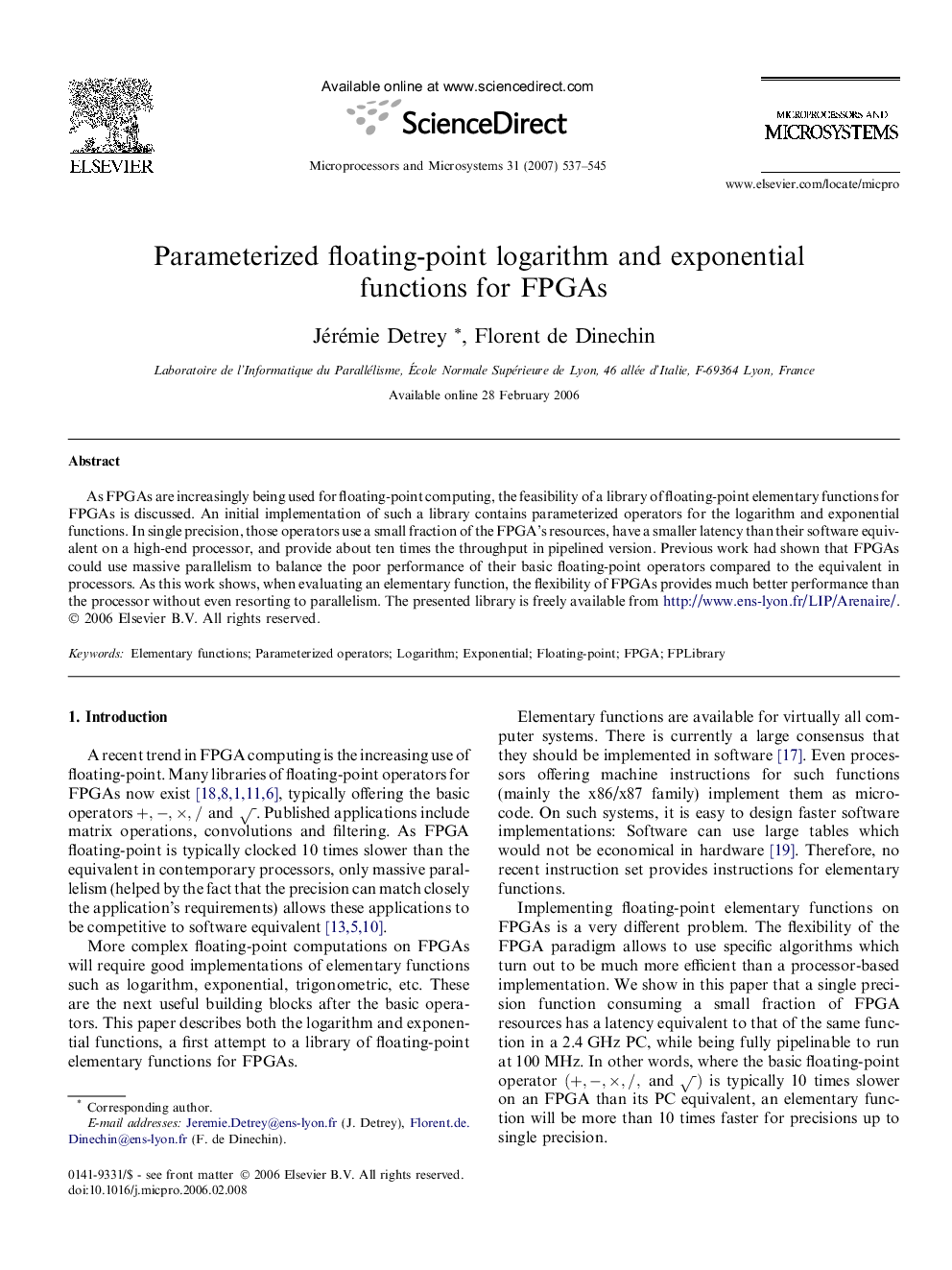| Article ID | Journal | Published Year | Pages | File Type |
|---|---|---|---|---|
| 460995 | Microprocessors and Microsystems | 2007 | 9 Pages |
As FPGAs are increasingly being used for floating-point computing, the feasibility of a library of floating-point elementary functions for FPGAs is discussed. An initial implementation of such a library contains parameterized operators for the logarithm and exponential functions. In single precision, those operators use a small fraction of the FPGA’s resources, have a smaller latency than their software equivalent on a high-end processor, and provide about ten times the throughput in pipelined version. Previous work had shown that FPGAs could use massive parallelism to balance the poor performance of their basic floating-point operators compared to the equivalent in processors. As this work shows, when evaluating an elementary function, the flexibility of FPGAs provides much better performance than the processor without even resorting to parallelism. The presented library is freely available from http://www.ens-lyon.fr/LIP/Arenaire/.
